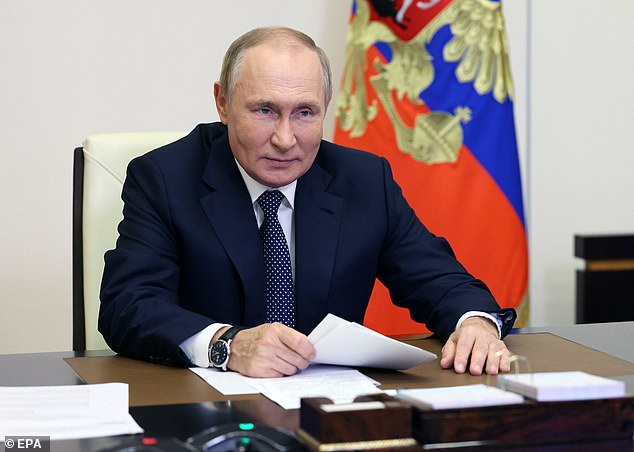
As Vladimir Putin intensifies his focus on the controversial annexation of Ukraine, his abandonment of allies becomes starkly evident, leaving Armenia to grapple with escalating tensions with Azerbaijan. The region is witnessing a surge in violence, with over 200 Armenian soldiers and 80 Azerbaijani troops losing their lives in clashes on September 13-14 and later on September 28, marking the most severe outbreak of hostilities since the 2020 Nagorno-Karabakh war.
Armenia, a formal ally of Russia through its membership in the Moscow-led Collective Security Treaty Organization (CSTO) mutual defense pact, finds itself in a precarious situation. Pleas for support from the Kremlin have fallen on deaf ears, as Putin directs all available resources towards the controversial Ukrainian invasion, deeming Armenia’s concerns secondary. Moscow-based journalist Gabriel Gavin noted that Russia seems uninterested in brokering a peace deal, leaving Armenia to navigate the turbulent waters alone.
Despite being a part of the CSTO, other member states like Kazakhstan have refrained from sending troops to assist Armenia, showcasing Russia’s reluctance to allocate resources away from its Ukrainian endeavors. The ongoing violence, initiated by Azerbaijan’s military actions, has now expanded beyond Nagorno-Karabakh, with cities along the southern border, including Goris, Kapan, Sotk, Artanish, Vardenis, and Ishkhanasar, coming under attack. Hundreds of civilians are fleeing the affected areas in response to the escalating conflict.
The historical conflict over the ownership of Nagorno-Karabakh, fought over two wars and spanning three decades, has witnessed sporadic skirmishes. Armenia’s recent appeals to the CSTO for assistance, following clashes on September 13-14, went unanswered, and a subsequent deadly clash on September 28 has pushed the death toll closer to 300.
Azerbaijan’s latest strikes on cities along the southern border signal an escalation of aggression, testing Russia’s commitment to its allies. The lack of a substantial response from the Kremlin leaves Armenia vulnerable, as it grapples with the growing military power exerted by Azerbaijan.
Meanwhile, Vladimir Putin’s efforts to solidify control over the southeast of Ukraine face challenges. Despite claims of successfully annexing four Ukrainian provinces, including Luhansk, Donetsk, Zaporizhzhia, and Kherson, setbacks have emerged. Ukrainian forces, led by President Volodymyr Zelensky, continue a powerful counterattack, regaining control over territory and challenging Russia’s territorial claims.
In Kherson, Ukraine’s forces make advancements along the Dnipro River, threatening to cut off hundreds of Russian soldiers. The situation remains tense, underscoring the complexities and difficulties Putin encounters in formalizing the annexation of these Ukrainian regions. The dual crises in Ukraine and Armenia present Putin with significant geopolitical challenges as he navigates shifting alliances and global repercussions.
RELATED ARTICLES
- After Fooling the People to Reelect Putin, Russia now announces More Cannon Fodder Mobilizations
- Russia Fires Barrage of North Korean Missiles at Kyiv After US Visit
- Ex-Wagner fighters Join Free Russia Army's Battle to Liberate Russia from Putin Occupation
- Hungary Becomes First EU Country to Congratulate Putin for Winning the 'Elections'
- Putin says NATO Troops are already in Ukraine But Russia is Still Winning











